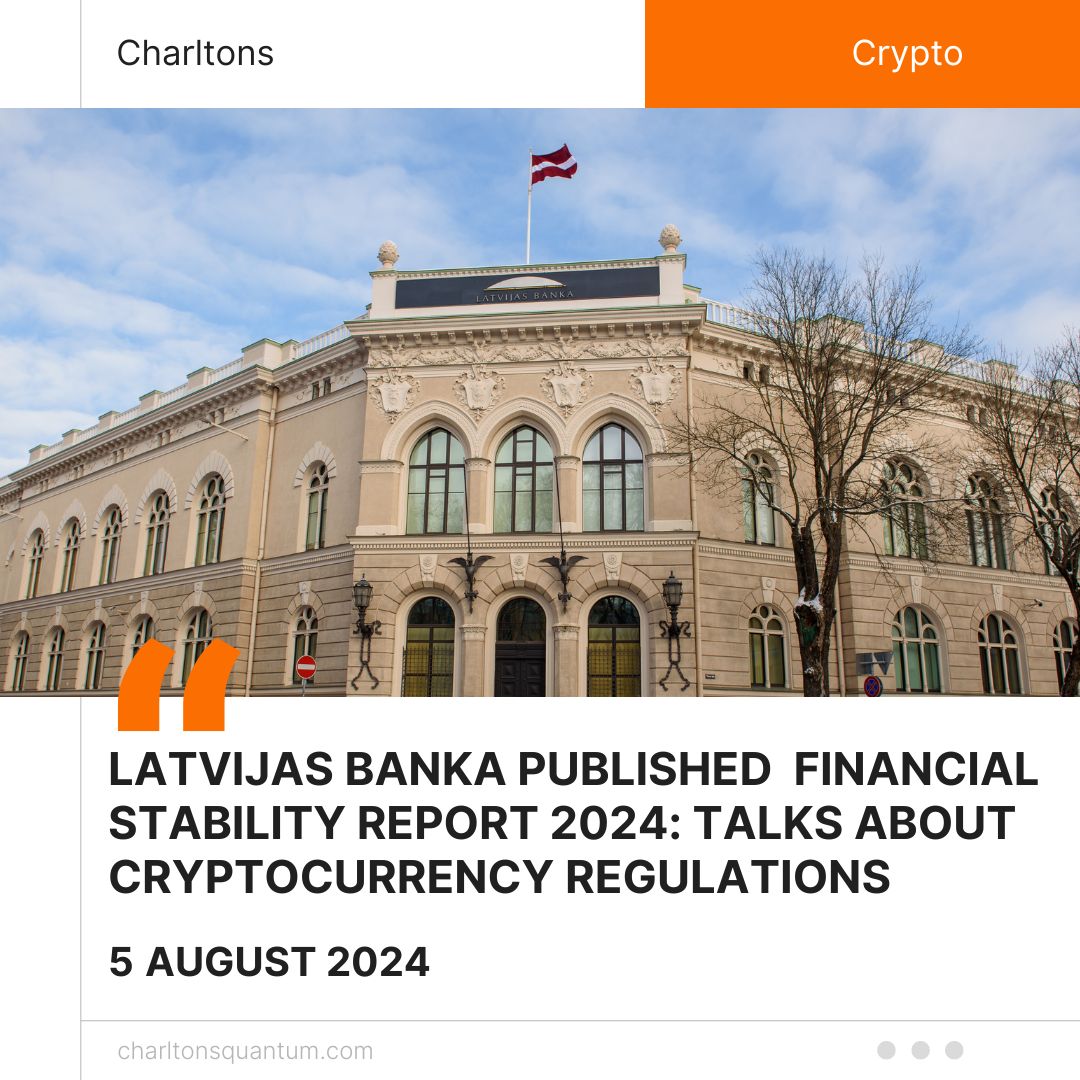
On 26 July 2024, Latvijas Banka published its Financial Stability Report, offering a comprehensive analysis of Latvia’s financial system. The report addresses key areas such as the macrofinancial environment, the real estate market, credit institution sector developments, and macroprudential policy measures. It provides insights into the economic challenges and risks facing Latvia, as well as the measures being taken to ensure financial stability and resilience.
The report highlights several critical developments, including the impact of geopolitical tensions on the financial sector, the slow growth in domestic lending, and the significant role of household and corporate solvency in maintaining economic stability. Additionally, it discusses the importance of enhancing the resilience of the banking sector through strategic measures such as increasing capital buffers and revising lending standards to promote sustainable investments.
Latvia is witnessing a growing interest in crypto-assets among its residents. The report reveals that the proportion of households owning crypto-assets has nearly doubled, from 4% in February 2023 to 7% in February 2024. This increase signifies a cautious yet notable engagement with digital currencies by the Latvian public. Despite the rising interest, the actual financial engagement with crypto-assets has shown a decline. Payments made by Latvian residents to crypto-wallets using Latvian-issued payment cards dropped by 17.6% in 2023, amounting to 42.7 million euros compared to 51.76 million euros in 2022. This reduction suggests a cautious approach by households in the wake of regulatory changes and market uncertainties.
The report outlines the comprehensive regulatory framework being implemented to address the risks associated with crypto-assets. Key aspects of this framework include consumer protection, ensuring that investors are protected from fraudulent schemes and ill-considered investments, and preventing the concentration of market power among a few dominant service providers to maintain a competitive and fair market landscape. Additionally, the regulations aim to mitigate the risks of money laundering and other financial crimes associated with crypto-assets through enhanced oversight and stricter regulations.
To fortify the financial sector against potential disruptions from the crypto market, Latvijas Banka is implementing several strategic measures. These include a gradual increase in the countercyclical capital buffer (CCyB) to 1%, enhancing the banking sector’s ability to absorb losses during economic downturns, and revised lending standards to promote investments in energy-efficient housing and buy-to-let properties. These measures are designed to encourage sustainable investments and facilitate the refinancing process for borrowers.
Latvijas Banka’s 2024 Financial Stability Report underscores the importance of a robust regulatory framework to navigate the dynamic crypto-asset landscape. By addressing key risks and promoting secure investment practices, the bank aims to ensure long-term financial stability in Latvia. The proactive approach adopted by Latvijas Banka serves as a model for balancing innovation with stringent oversight. As the crypto-asset market continues to evolve, these regulatory measures will play a crucial role in protecting investors and maintaining the integrity of the financial system.
(Source: https://datnes.latvijasbanka.lv/fsp/FSP_2024_EN.pdf)





